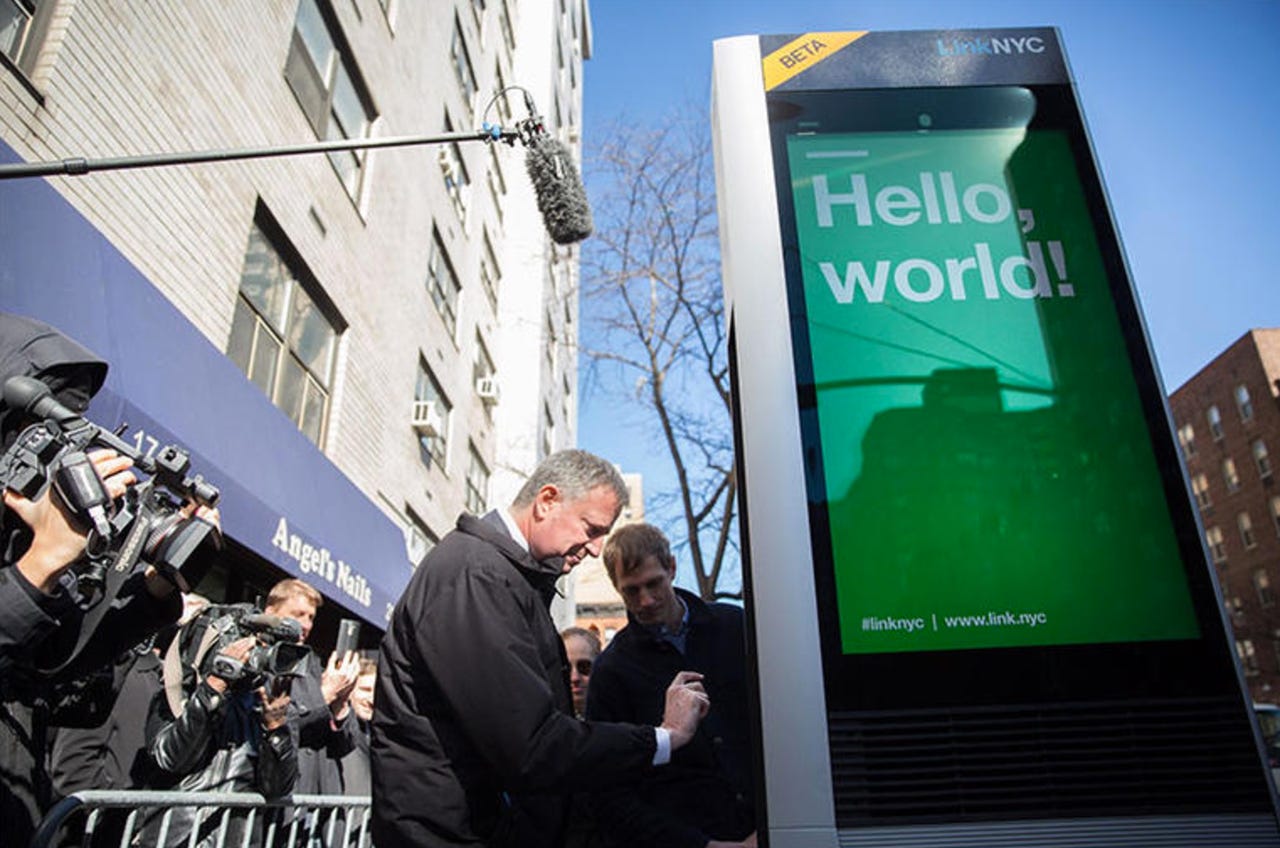London's Link smart kiosks will be stripped down due to NYC complaints


Link smart kiosks due to come to London will not have the browsing capabilities of their original counterparts in New York City after the latter caused a stream of complaints from unhappy residents.
Since LinkNYC was launched in January, the Google-backed company has dealt with a stream of problems caused by the smart kiosk's internet browsing features.
Reports suggested that the kiosks, which replaced a number of defunct pay phones with connected services for tourists and residents alike, were being used by the homeless for inappropriate purposes, such as streaming pornography, which led to LinkNYC removing the browsing capabilities on the kiosk's tablet.
LinkNYC's 400 kiosks are now operating on limited settings until a more permanent solution is found -- and to prevent such problems happening again, smart kiosks destined for London's streets will be treated in the same way.
As reported by Motherboard, citizens in the United Kingdom's capital will have the same standard functions, such as map access, emergency services, tourist assistance, and Wi-Fi hotspot connections, but browsing directly from the kiosk's tablets will not be possible.
A Link spokesperson told Motherboard:
"They won't actually have browser functionality on the tablet that will be on the kiosks. So there won't be an opportunity for anyone to set up a Google search or be able to monopolise on those kiosks so other people wouldn't be able to use them, they wouldn't be able to encounter that issue [inappropriate use]."
When Link first debuted the NYC kiosks, the goal was to give residents free access to gigabit-speed Wi-Fi which would help "bridge the digital divide" by "providing every New Yorker with access to the most important tool of the 21st century," according to New York City Mayor Bill de Blasio.
In order to fund the scheme, the kiosks are supported by advertising, and it is hoped that in New York alone -- once 7,500 kiosks are installed -- over $500 million will be generated for both the company and city. LinkNYC says almost half a million residents have signed up to use the system and web access has been granted over 20 million times.
It's a shame, but as with many smart city ideas which become reality, there are likely to be teething issues. It may be that these features will once again become active on major city streets once the appropriate usage problems have been tackled -- and they could be so by solutions including blocking adult websites, browser monitoring systems, or potentially time limits on use.